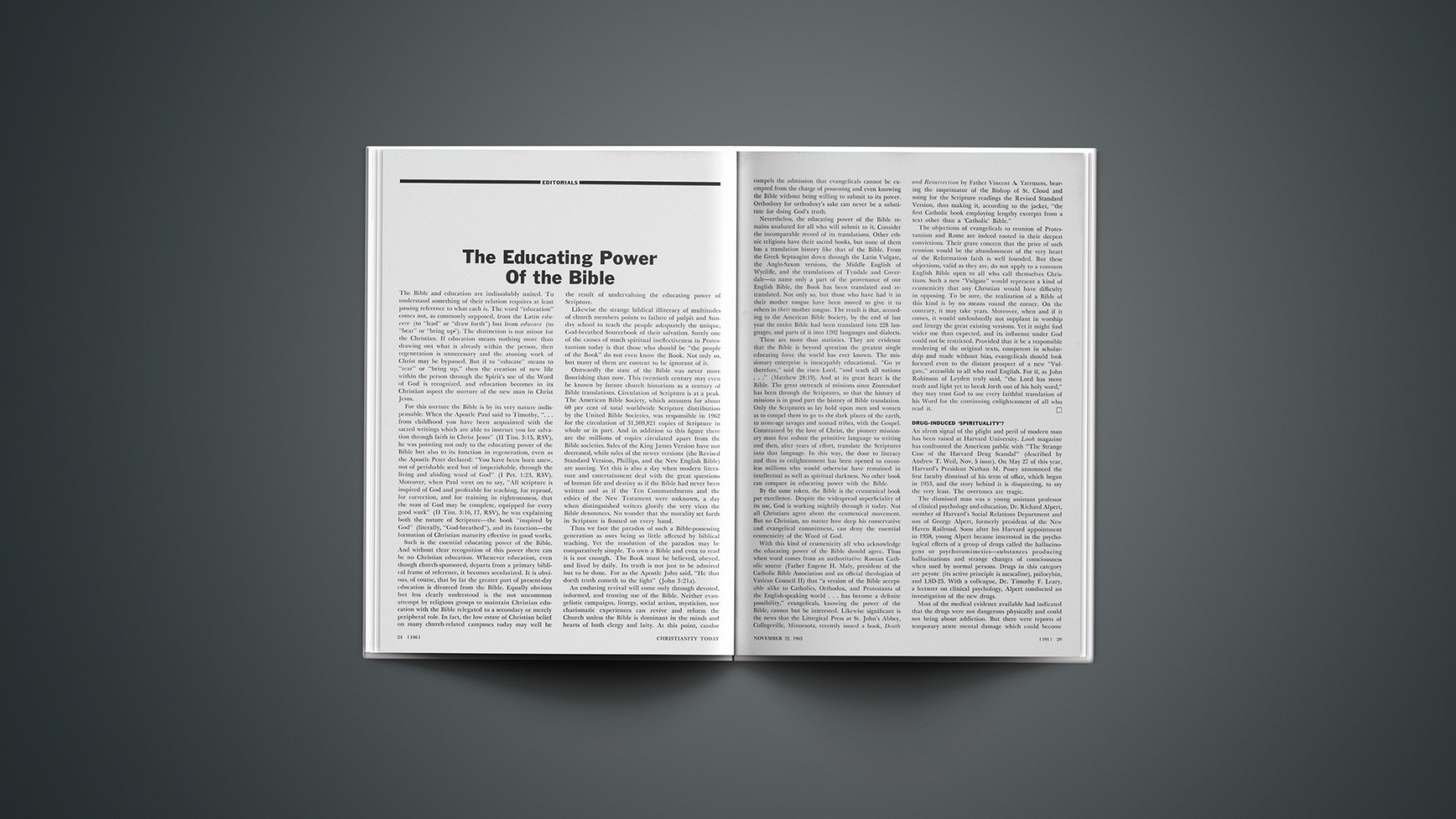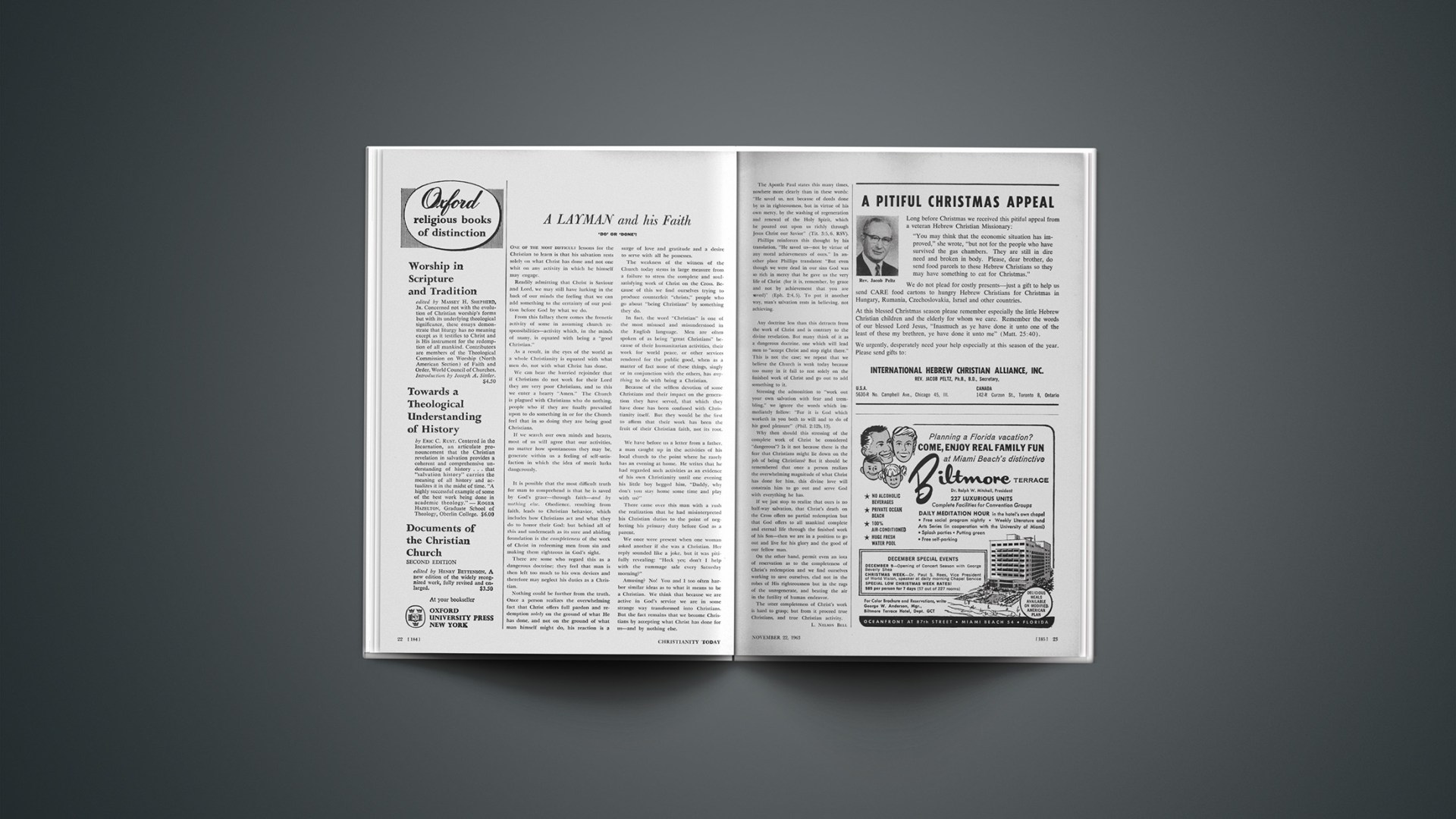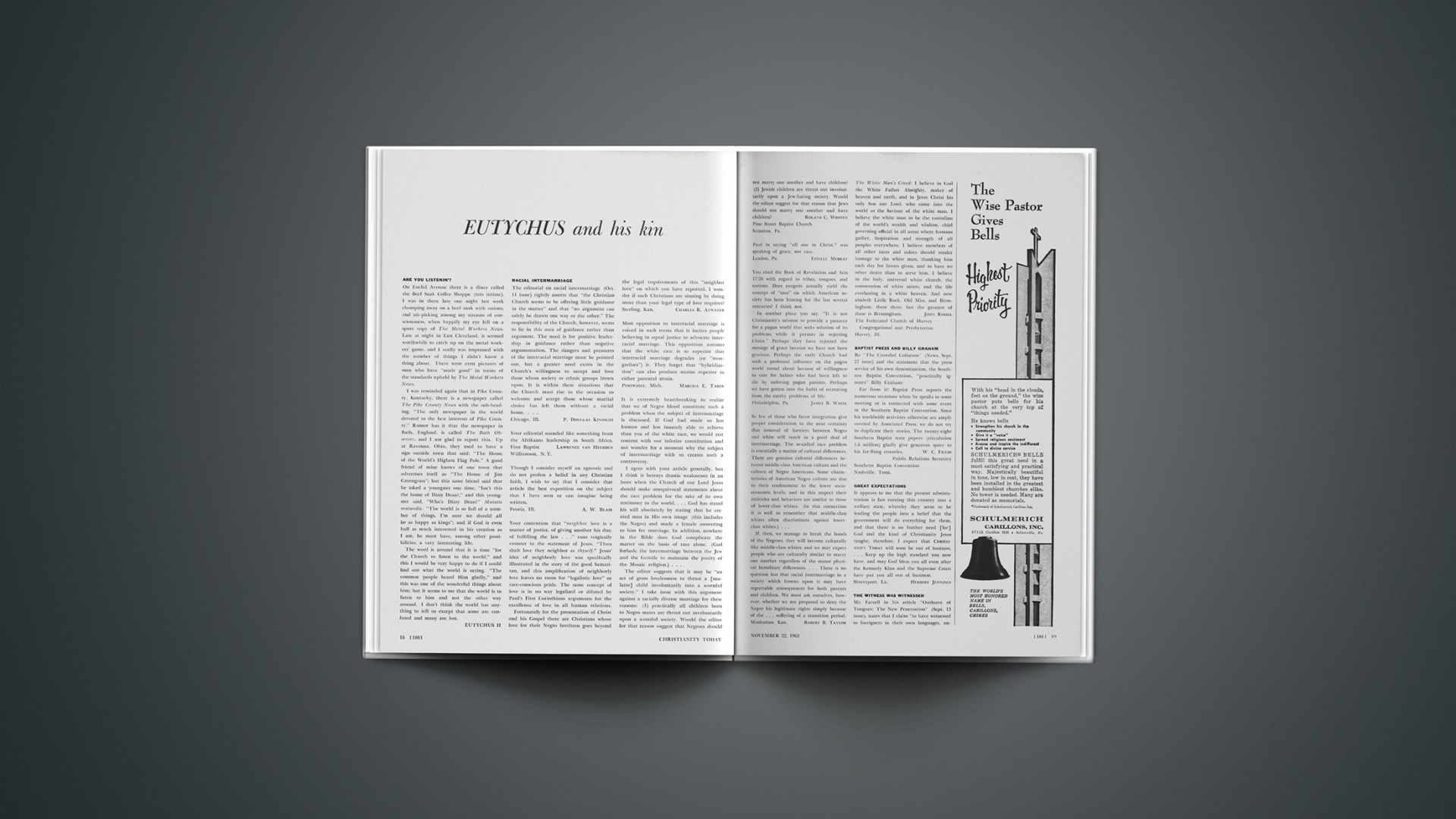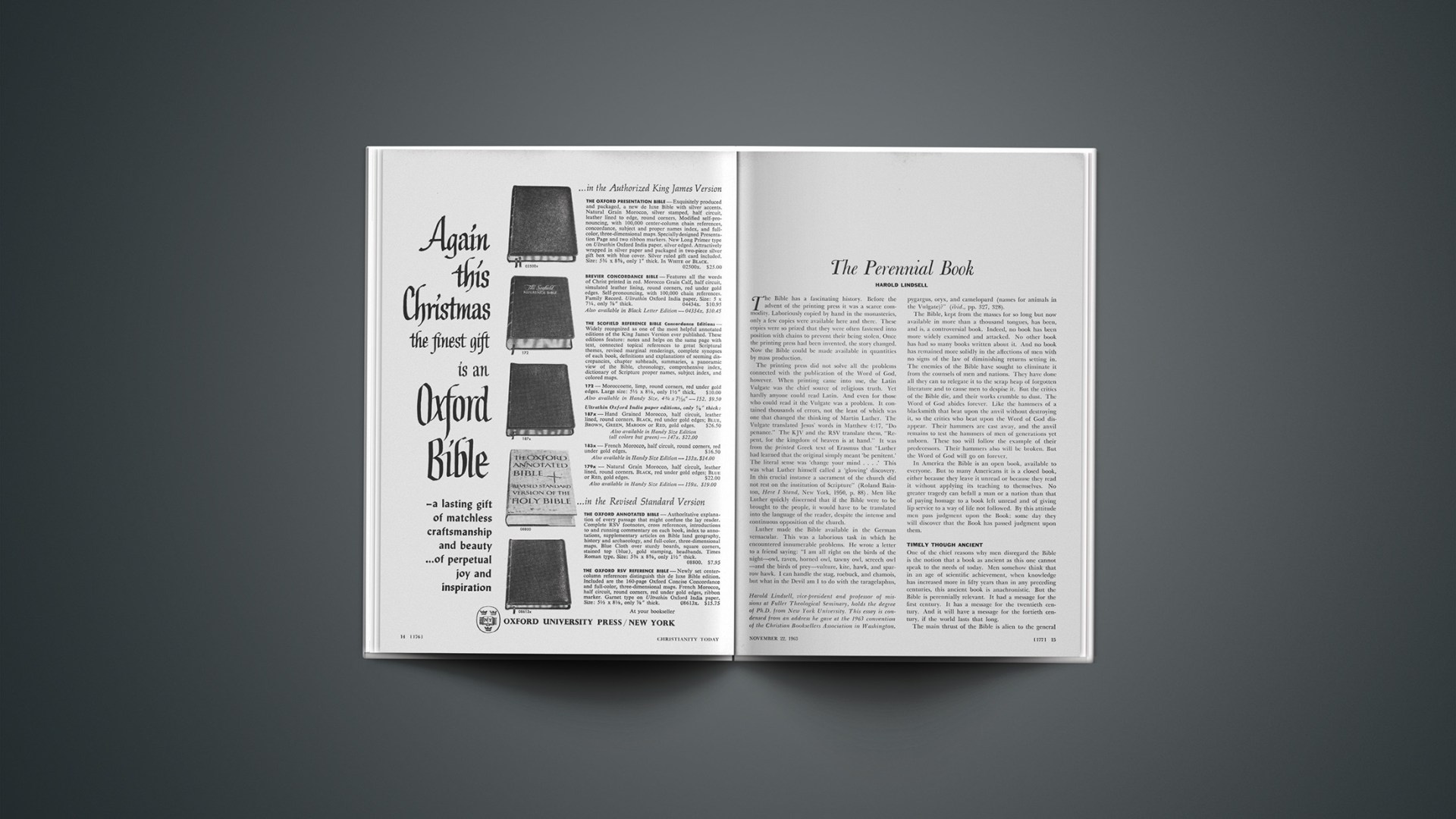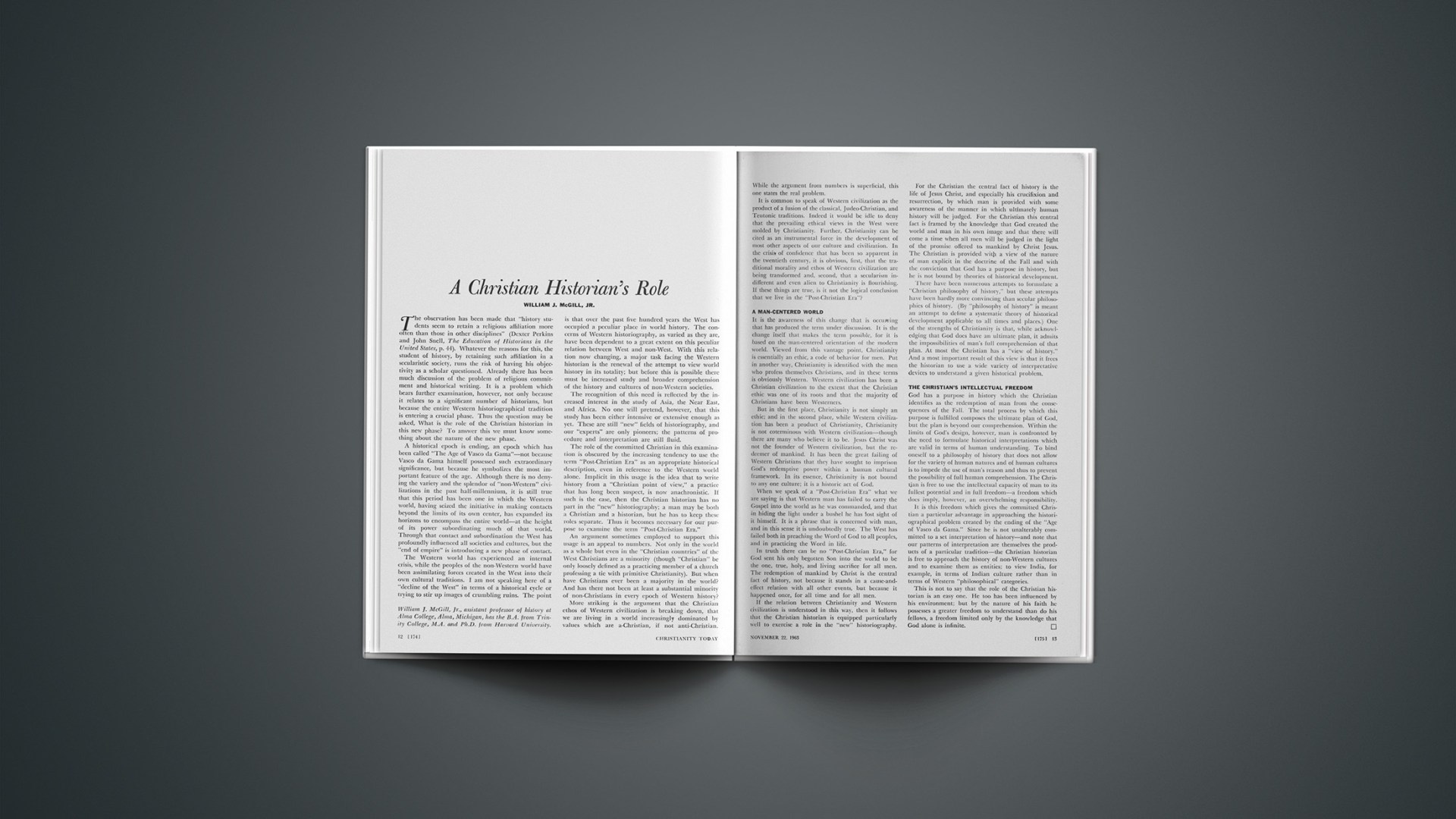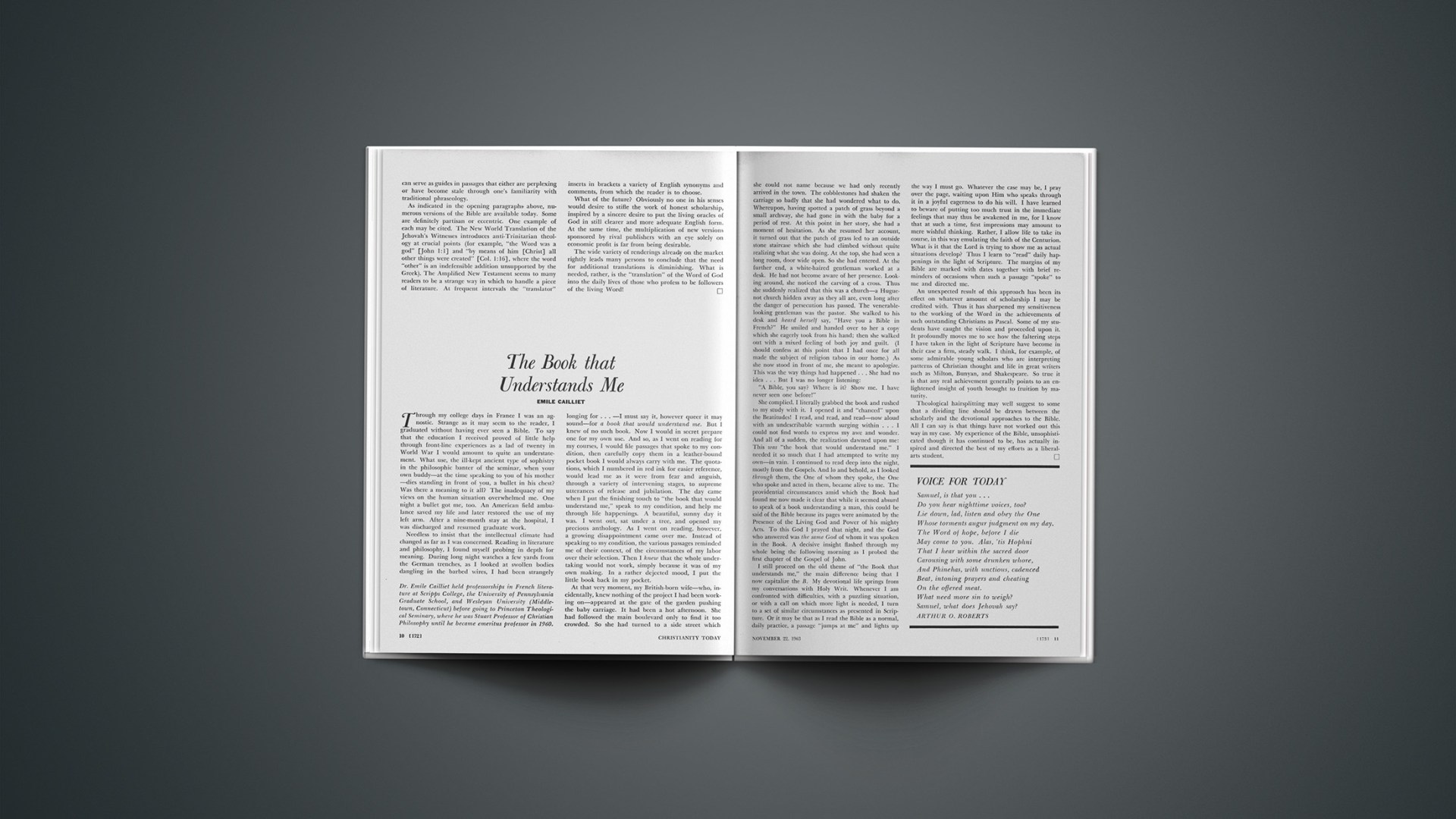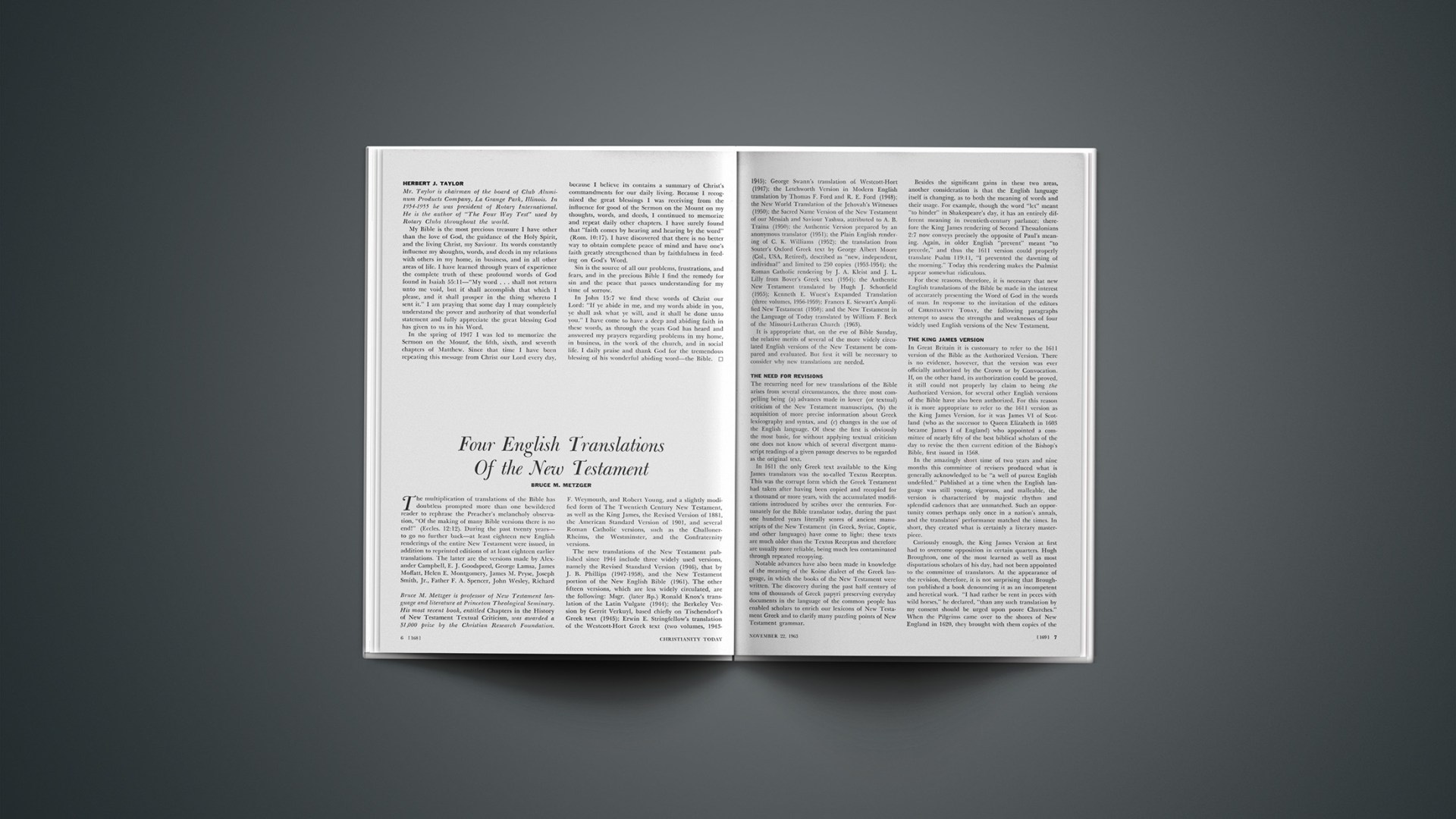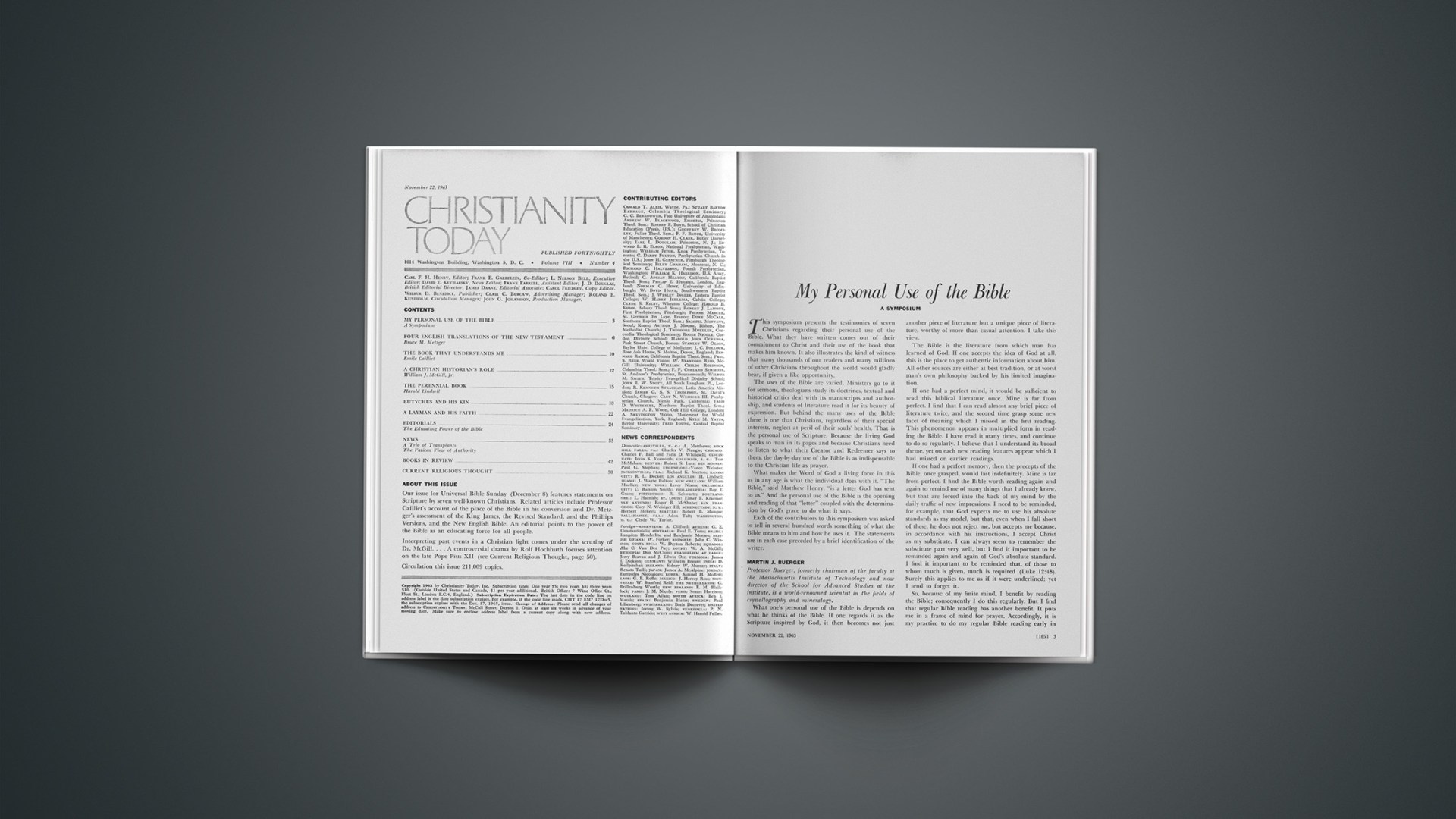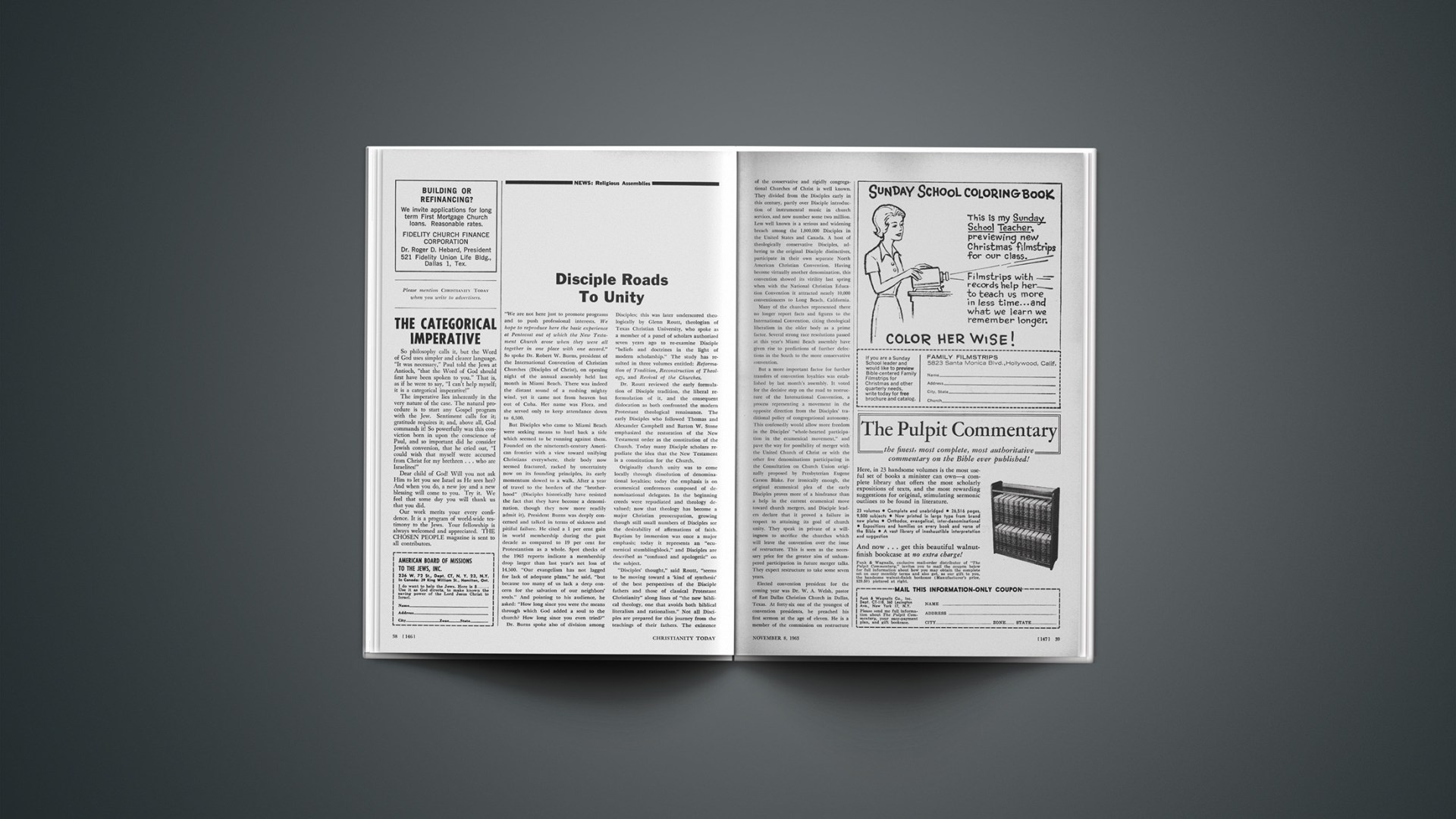Dedication ceremonies were held on the new campuses of four Protestant seminaries this fall. The services climaxed campus relocation programs for three of the schools: Louisville Presbyterian Theological Seminary in Louisville, Kentucky, Bethany Theological Seminary, and Northern Baptist Theological Seminary. Bethany, belonging to the Church of the Brethren, and Northern, which is American Baptist, are next-door neighbors on the plains of Illinois at Oakbrook, just west of Chicago.
Waterloo Lutheran Seminary in Waterloo, Ontario, also has a completely new facility. A $515,000 structure replaces an old building that was torn down.
The new Louisville seminary campus embraces nine buildings erected at a total cost of $4,500,000. They are situated on a thirty-acre plot overlooking Cherokee Park in Louisville. The seminary is operated jointly by the Presbyterian Church in the U. S. (Southern), and the United Presbyterian Church in the U. S. A. Two dedication services, including a service of thanksgiving, were held in October.
The Church of the Brethren dedicated its $3,000,000 Oakbrook campus on November 11. Designed for an enrollment of 250, Bethany Theological Seminary now has a complex of eleven buildings. To help pay the costs, the 1,070 Church of the Brethren congregations across the nation conducted special offerings on Sunday, November 10. Bethany is the denomination’s only theological seminary. It was founded in 1905 and until last summer was located on an acre and a half on Chicago’s Near West Side.
Northern Baptist Theological Seminary also had been located in Chicago before its move to Oakbrook. Five buildings have already been completed on the new campus, and more are to come. Present value is nearly $2,000,000. An anonymous challenge gift of $300,000 launched a development campaign which netted nearly $900,000. A three-day campus dedication ceremony was held at the end of September.
The seminary at Waterloo dates back to 1911. Out of it grew Waterloo Lutheran University, which started as a secondary school in 1914. The seminary now claims to be the major center in Canada for the training of Lutheran pastors. It has facilities for a maximum of seventy-five theological students. The dedication was held October 20.
All of the new seminary campuses are of contemporary design. Waterloo, however, has an inside courtyard with classical proportions and includes a garden and walk reminiscent of Old World monastery gardens.
Louisville Presbyterian and Bethany are fully accredited by the American Association of Theological Schools. Northern Baptist and Waterloo are understood to be applying for such accreditation.
Coffee Break
Along Melrose Avenue in Knoxville, Tennessee, stands an old mansion which has been the focal point of a major Presbyterian controversy. Situated across the street from the University of Tennessee campus, the building houses the Presbyterian Center, designed to provide a spiritual outreach for students. For thirteen years it was operated jointly by synods of the two major Presbyterian denominations. Citing “unresolved differences,” a special commission empowered by the Appalachia Synod of the Presbyterian Church in the U. S. announced last month that it was withdrawing its 60-per-cent share of the support.
The center first came under fire when a Knoxville newspaper, the Journal, charged that the center was linked with the Highlander Educational and Research Center, reputedly a left-wing organization. After prolonged unfavorable publicity regarding the center the Appalachia Synod named a sixteen-member special study commission with the power to take appropriate action. The United Presbyterian Synod of Mid-South, which provided 40 per cent of the center’s operating funds, issued an unqualified endorsement of the project and its leader, the Rev. Ewell J. Reagin.
The commission’s investigation, meanwhile, took four months. The official announcement of withdrawal from the project gave no specific reasons for the action. It did specify that the action did not imply that “the director of the center has been or is disloyal to our country.”
The commission’s unanimous vote to withdraw was understood to be based on theological issues and a lack of a positive witness at the center. The members felt that the center’s approach to spiritual matters in both administration and program was not the one best calculated to honor God, bear witness for the Church, or inspire faith in the integrity and authority of the Scriptures. Many people in Knoxville thought that a coffee house run by the center was pervaded by a beatnik air with little or no positive evangelical message. When questioned by the commission as to his theological convictions, Reagin said his long ties with Presbyterianism constituted a sufficient answer (he was first ordained as a Cumberland Presbyterian clergyman, later as a United Presbyterian).
Informed of the decision by the commission of the Appalachia Synod, a spokesman for the Synod of Mid-South expressed regret and charged that the commission had “fixed new confessional demands upon this work that have not existed before.”
The center apparently will continue operations with all of its support coming from United Presbyterians. It has not yet been determined whether the Appalachia Synod will establish another center of its own for Tennessee students.
Ivy League Assignment
Evangelist Billy Graham spent two days on the campus of Princeton University and the adjacent Princeton Theological Seminary this month. He spoke several times at meetings attended by faculty members as well as students.
Graham has a number of speaking engagements during the winter, but no major crusades until next spring. He has said he will spend most of his time in the United States during the next year or two. In London, however, a group of seventy distinguished laymen led by Lord Luke met at lunch this month and passed unanimously a resolution urging Graham to hold a crusade there in 1965.
Compromise For Colleges
The fate of a $1,195,000,000 college aid bill that would provide federal grants and loans to church-related schools as well as to public institutions was in the hands of the U. S. Senate this month.
The Senate had already passed a college aid bill providing for judicial review of the constitutionality of aid to church-related colleges. A Senate-House conference threw out the provision, and the House immediately passed the compromise bill. It was then turned over to the Senate. No amendments can be made on the floor.
Bibles For Campuses
The American Bible Society is launching a new “campus ministry” to increase Scripture distribution among students. Dr. Arthur P. Whitney, a Methodist clergymen, is national secretary of the project.
Prosperity, Power, And Peril
Here is the text of President Kennedy’s 1963 Thanksgiving Proclamation:
Over three centuries ago, our forefathers in Virginia and Massachusetts, far from home in a lonely wilderness, set aside a time of thanksgiving. On the appointed day, they gave reverent thanks for their safety, for the health of their children, for the fertility of their fields, for the love which bound them together and for the faith which united them with their God.
So too when the colonies achieved their independence, our first President in the first year of his first Administration proclaimed November 26, 1789, as “a day of public thanksgiving and prayer to be observed by acknowledging with grateful hearts the many signal favors of Almighty God” and called upon the people of the new republic to “beseech Him to pardon our national and other transgressions … to promote the knowledge and practice of true religion and virtue … and generally to grant unto all mankind such a degree of temporal prosperity as He alone knows to be best.”
And so too, in the midst of America’s tragic civil war, President Lincoln proclaimed the last Thursday of November 1863 as a day to renew our gratitude for America’s “fruitful fields,” for our “national strength and vigor,” and for all our “singular deliverances and blessings.”
Much time has passed since the first colonists came to rocky shores and dark forests of an unknown continent, much time since President Washington led a young people in the experience of nationhood, much time since President Lincoln saw the American nation through the ordeal of fraternal war—and in these years our population, our plenty and our power have all grown apace. Today we are a nation of nearly two hundred million souls, stretching from coast to coast, on into the Pacific and north toward the Arctic, a nation enjoying the fruits of an ever-expanding agriculture and industry and achieving standards of living unknown in previous history. We give our humble thanks for this.
Yet, as our power has grown, so has our peril. Today we give our thanks, most of all, for the ideals of honor and faith we inherit from our forefathers—for the decency of purpose, steadfastness of resolve and strength of will, for the courage and the humility, which they possessed and which we must seek every day to emulate.
As we express our gratitude, we must never forget that the highest appreciation is not to utter words but to live by them.
Let us therefore proclaim our gratitude to Providence for manifold blessings—let us be humbly thankful for inherited ideals—and let us resolve to share those blessings and those ideals with our fellow human beings throughout the world.
Now, therefore, I, John F. Kennedy, President of the United States of America in consonance with the joint resolution of the Congress approved December 26, 1941, 55 Stat. 862 (5 U.S.C. 87b), designating the fourth Thursday of November in each year as Thanksgiving Day, do hereby proclaim Thursday, November 28, 1963, as a day of national thanksgiving.
On that day let us gather in sanctuaries dedicated to worship and in homes blessed by family affection to express our gratitude for the glorious gifts of God; and let us earnestly and humbly pray that He will continue to guide and sustain us in the great unfinished tasks of achieving peace, justice, and understanding among all men and nations and of ending misery and suffering wherever they exist.



